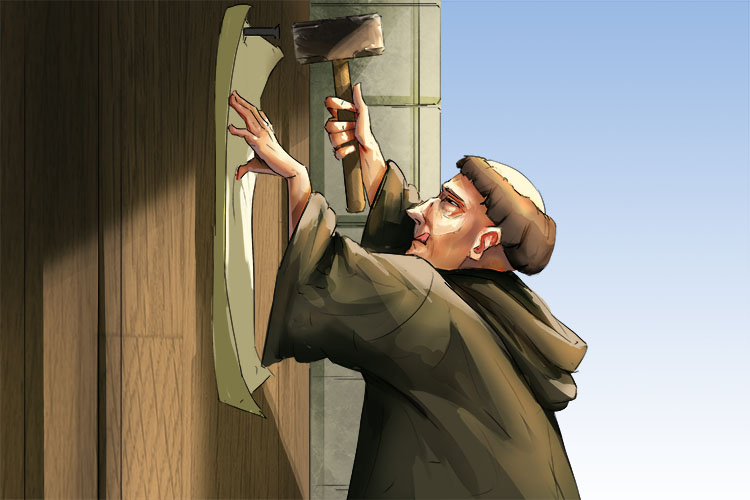Reformation (Churches) – The start of the split of the Western church into Protestants and Catholics in the 16th century
To remember the meaning of the term Reformation (Churches), use the following mnemonic:
They reformed and set up in a new location (reformation) and called themselves Protestants. There were lots of protests about it.
-in-crime-and-punishment-rs.63c8d27.jpg)
By the 16th Century, some religious people were becoming exasperated by the political manipulations and increasing wealth of the Roman Catholic Church. Catholicism was seen as lacking in spirituality while seeking power and riches. Some members of the priesthood fell into disrepute for selling indulgences (spiritual privileges) for their own gain.
A number of Catholics, including Germany's Martin Luther, began to form breakaway groups which became the Protestant movement (including today's Anglican Church). This was the start of the Reformation.
Luther, a pastor and professor at the University of Wittenberg, posted what became known as his Ninety-five Theses on the door of the Castle Church, Wittenberg, on October 31, 1517, the traditional date for the beginning of the Reformation. The theses were Luther's ideas for change concerning penances and indulgences, the then Catholic church's complex system that allowed people to be absolved from sin and achieve salvation through various acts and payments.

He declared that salvation was free, and that no one had to do or pay anything to obtain it.
Luther did not originally intend to break with the Catholic Church but a confrontation with the Pope soon came. In 1521, Luther was excommunicated from the Catholic Church. What had started as an internal reform movement had become a fracture in western Christianity.
Other, similar reform movements quickly arose throughout Western Europe.




